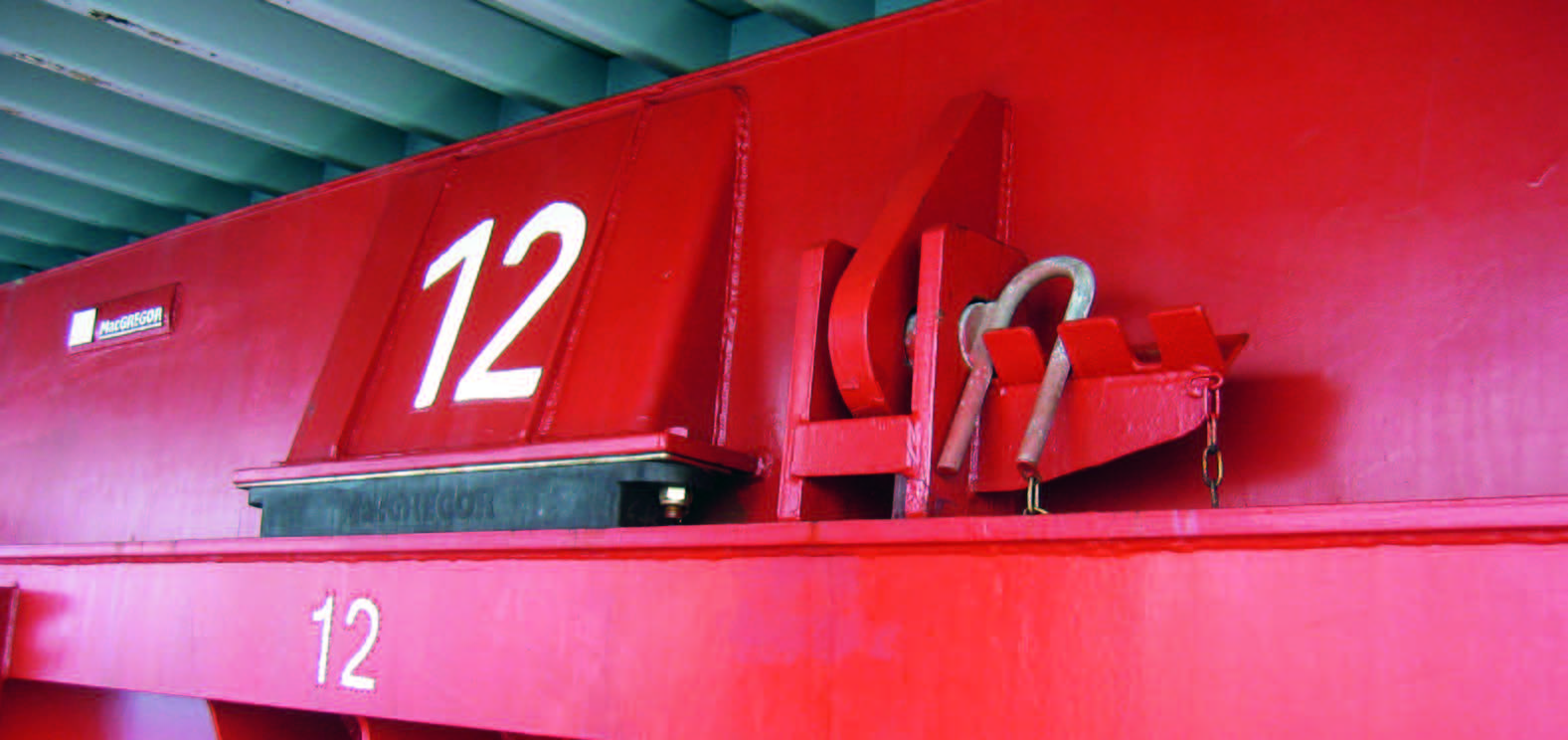

Bearing pads
Support pads installed on the hatch coaming in order to transfer the weight of the cover, and any cargo it may be carrying, to the ship hull while allowing for relative movement between the cover and the hatch coaming. Bearing pads must also maintain the correct compression on the hatch cover seal and avoid damage to the coaming/hatch cover interface. Steel/steel bearing pads (Fixpad or Steelpad) are sufficient for most ships. For larger covers, increased relative movements or excessive loadings, a special arrangement based on low friction flexible replaceable sliding pads (Unipad or Lubripad) or non-sliding flexible replaceable pads (Flexipads) is recommended.
- Fixpad – Welded steel pad with the mating surface of wear-resistant steel.
- Flexipad – A non-sliding flexible bearing pad developed by MacGREGOR. It is made up of flat layers of steel and rubber, bonded together and mounted on a steel plate. The load on Flexipad from the weight of the hatch cover and cargo causes some compression in its rubber elements. A horizontal load causes a sideways deflection of the rubber layers. In general there is no sliding of the pads on the coaming to cause bearing surface wear.
- Lubripad – Lubripad was developed by MacGREGOR to meet the needs of larger cargo ships and heavier overall loads. A key feature is the patented balance rubber that acts as an equaliser for uneven loads. The replaceable bronze bearing pad is coated with low friction PTFE for even smoother sliding.
- Steelpad – MacGREGOR’s steel pads in a steel holder, mating surface of wear-resistant steel.
- Unipad – MacGREGOR’s replaceable low-friction bearing pad. Unipad has a layer of woven PTFE that creates a low-friction surface between the pad and its mating plate. This makes the movement of a heavily-loaded hatchcover possible and minimises pad/mating plate wear-down.
